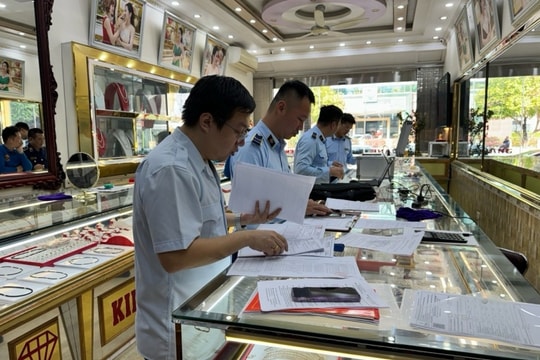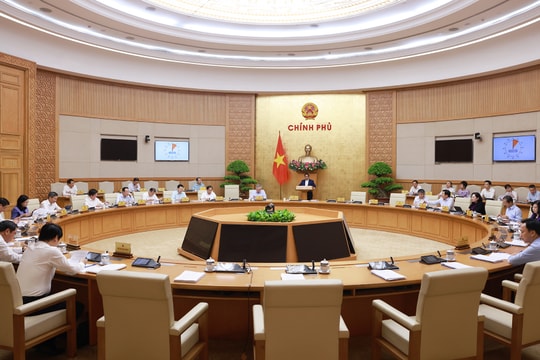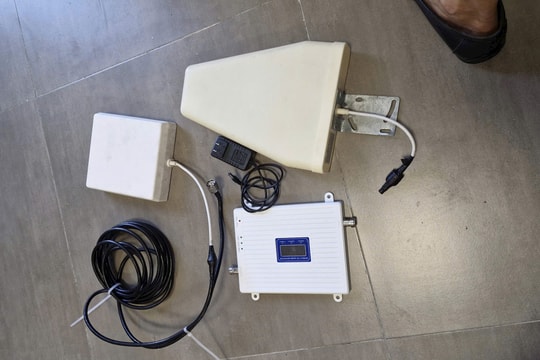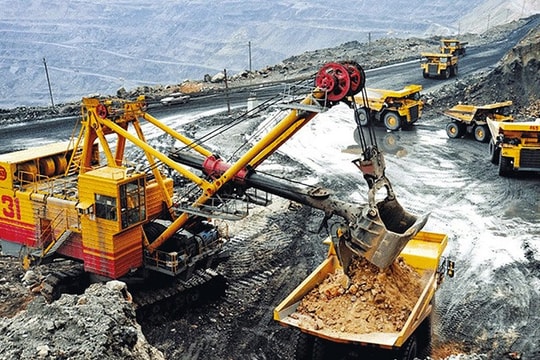Urgent and long-term issues
(Baonghean)- Through summarizing 10 years of implementing Resolution No. 48 of the Politburo on the Strategy for building and perfecting the legal system until 2010, with a vision to 2020; 10 years of implementing the Law on Anti-Corruption at the local level and in the integration trend of the country as a member of the Trans-Pacific Partnership Agreement (TPP), it can be clearly seen that anti-corruption is the responsibility of the entire political system and is an important, urgent, long-term task throughout the process of socio-economic development and building a rule-of-law state in the new era.
In recent times, with the determination and efforts of Party committees and authorities at all levels, the involvement of the entire political system and the strong and active participation of the masses, the work of preventing and combating corruption in our country has achieved many important results, creating positive changes in the awareness and actions of all levels and sectors.
However, corruption is still complicated, occurring in many areas, at many levels, and in many sectors. Through the discovery and handling of cases, it is shown that the nature of corruption is increasingly sophisticated, the tricks are more cunning, the scope and areas of corruption are increasingly wide, even organized in some major corruption cases. Therefore, the completion of the legal framework for preventing and combating corruption is necessary and requires more urgency to catch up with the progress when the TPP Agreement comes into effect.
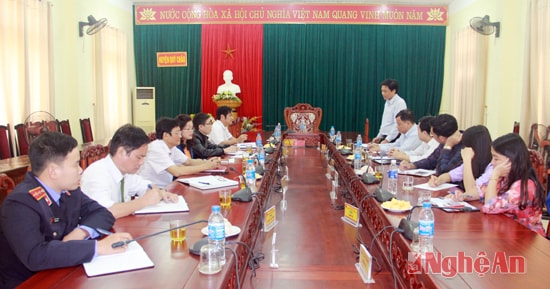 |
| Directing anti-corruption work at Quy Chau District People's Committee |
The TPP Agreement includes a chapter on “transparency and anti-corruption”, which aims to promote the goals shared by all Parties to the Agreement, of strengthening good governance and addressing the corrosive effects of bribery and corruption on the economy. Under this chapter, TPP Parties must ensure that, to the extent possible, their laws, regulations, and administrative regulations relating to any matter covered by the TPP Agreement are publicly available and open to comment.
The Parties shall ensure due process rights in administrative proceedings to interested parties, including prompt review through impartial administrative or judicial tribunals or procedures. The Parties also agree to adopt or maintain laws criminalizing the offering of undue advantages by a public official or other bribery affecting international trade or investment. The Parties commit to effectively apply their anti-bribery laws and regulations...
Thus, the transparency and anti-corruption requirements of the TPP Agreement require: Handling bribery in any form, providing regulations on transparency and anti-bribery based on the minimum standards of the UN Convention against Corruption, especially the requirements on criminalizing corrupt acts and focusing on handling bribery in any form that affects fairness and equality in international investment and trade.
From the practice of corruption prevention and control in recent times, it can be said that there are many reasons leading to the ineffectiveness of corruption prevention and control, but the most fundamental reason, in our opinion, is that the legal system in this field has many contents that are not clearly defined, not synchronous, and the authority and coordination between functional agencies are not high.
In order to continue to effectively implement Resolution No. 48 of the Politburo and the objective requirements in the process of integration and socio-economic development in our country, the construction and completion of the legal system on corruption prevention and control, we respectfully request the Steering Committee to consider supplementing and completing the following contents:
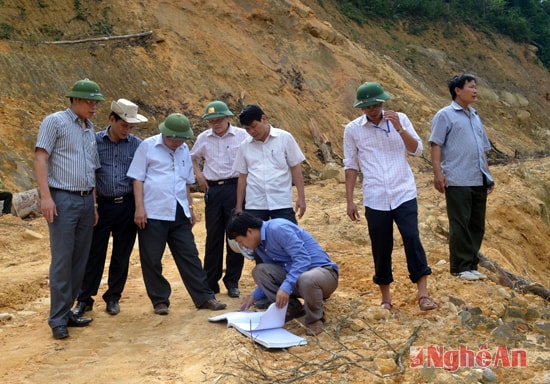 |
| Checking for signs of violations in logging in Pu Hoat special-use forest (Hanh Dich commune, Que Phong district). Photo: Nhat Lan |
First, on the regulations on handling people who commit acts of corruption. The regulations on criminal handling of acts of corruption need to be unified in the direction: The crime of accepting bribes, the crime of giving bribes and the crime of acting as a bribery broker are corruption crimes (the Penal Code stipulates the crime of accepting bribes as a corruption crime, but the crime of giving bribes and the crime of acting as a bribery broker are not stipulated as corruption crimes). Overlapping some provisions of the Penal Code (Article 289) and the Law on Anti-Corruption (Article 70) on handling corruption should be overcome. The regulations on disciplinary sanctions for civil servants who commit acts of corruption need to be specific for easy application and to avoid exploitation. The regulations on the subject with the authority to conclude acts of corruption of civil servants must be unified in the direction of allowing the court to conclude.
Regulations on statute of limitations and disciplinary action time limits for civil servants who commit acts of corruption need to be strict and specific when applying disciplinary measures, ensuring the principle of statute of limitations. In addition, research is needed to have more regulations on acts of material corruption that have occurred and are occurring in practice (sexual bribery).
Second, criminalize illegal enrichment. It is necessary to criminalize illegal enrichment. This is a measure to combat corruption crimes. Evidence of this crime is shown by an unusual, significant increase in assets and income of civil servants that is inconsistent with the legal income generated without a reasonable explanation of the origin of the increased assets. Thus, proving an unusual increase in assets of civil servants will be easier than proving that the increased assets originate from corrupt activities.
Third, the recovery of corrupt assets. The recovery of corrupt assets needs to be supplemented in the direction of: Stipulating the responsibility of the management and management agencies in coordinating with the prosecution agencies to apply measures to prevent the subjects from dissipating assets. On the other hand, corruption crimes must be strictly handled according to the prosecution framework, and the return of assets is the basis for reducing the sentence when serving the penalty. Thus, the return of assets due to corruption must be considered a mandatory circumstance, not a mitigating circumstance.
In addition, the Penal Code and the Criminal Procedure Code need to be amended and supplemented in the direction of: Emphasizing the issue of recovering corrupt assets. During the investigation process, the investigating agency is responsible for clarifying the location of the assets, the responsibility of the prosecuting agency in verifying assets for civil enforcement, and measures to seize assets as soon as there is sufficient basis to prosecute individuals for acts of corruption.
Specific regulations on the authority and procedures for international cooperation in the entrustment or order of foreign competent authorities on the verification, freezing, seizure and confiscation of corrupt assets originating from abroad. Overcoming shortcomings in judicial appraisal activities on a case-by-case basis to serve the work of preventing and combating corruption, clearly identifying damages caused by corruption.
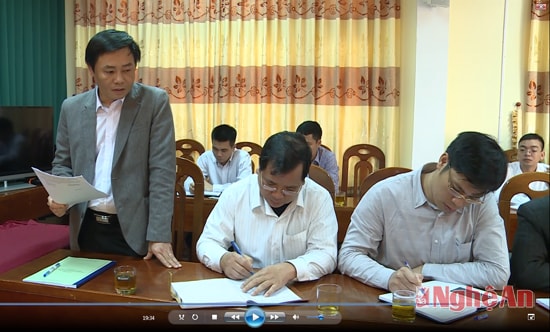 |
| The leaders of the Internal Affairs Committee directed specialized departments to carry out inspection and settlement of complaints and denunciations. |
Fourth, on controlling the assets and income of civil servants. It is necessary to develop, supplement and perfect legal regulations on controlling the assets and income of cadres and civil servants, especially those in positions and fields with high risks of corruption. In particular, it is necessary to focus on amending and supplementing regulations on declaration, explanation and verification of assets and income of people with positions and powers. There must be stricter regulations on supervising cadres in performing their duties regarding ethics and public service responsibilities.
Fifth, criminalize corruption in the private sector. Criminalizing corruption in the private sector is very necessary in the context of our country's international integration. Corruption in the private sector also causes dangerous consequences like this behavior in the public sector. Failure to criminalize corruption in the private sector means creating a vacuum of activity without investigation for corruption. In fact, the lack of regulations on corruption in the private sector has left out corruption in joint stock enterprises with state capital.
To welcome and promote the opportunities and advantages that TPP will bring in the coming time, we must also comply with international law and bilateral and multilateral agreements. The effectiveness of the fight against corruption depends on many factors, but the completion of the legal system is the central and immediate factor. Only scientific regulations can create effective mechanisms and measures for the fight against corruption. Making good use of these tools for ourselves is what we must aim for.
Ho Le Ngoc - Member of the Provincial Party Committee, Deputy Head of the Provincial Party Committee's Internal Affairs Committee

.jpg)
